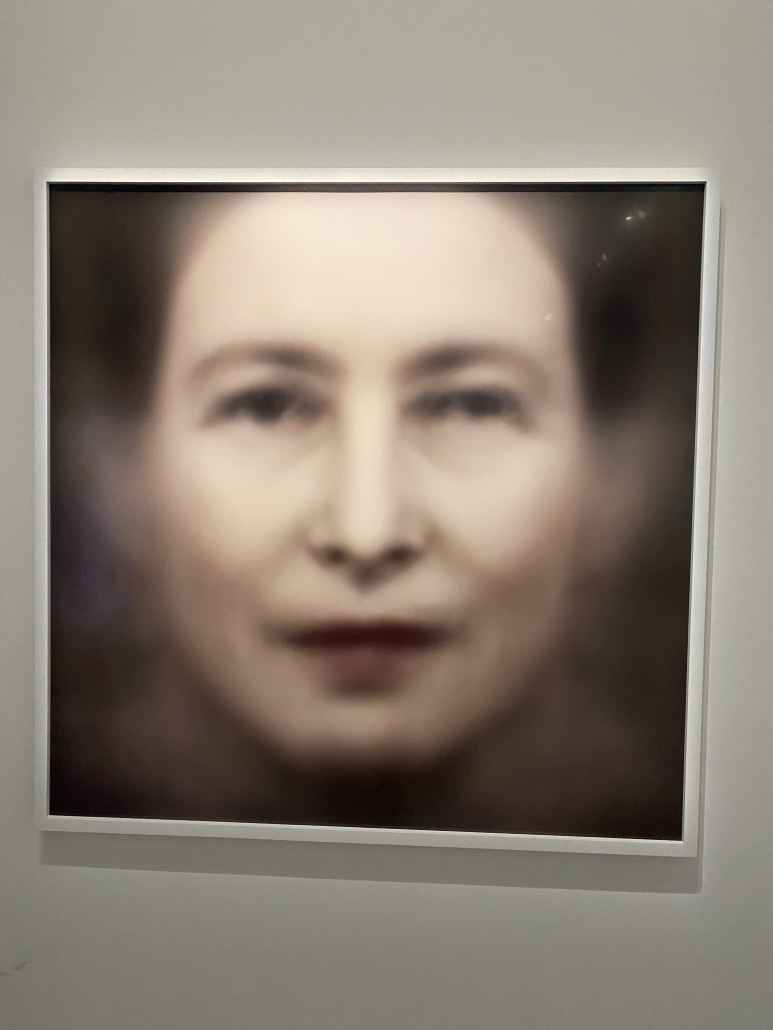#existentialism
#existentialism
[ follow ]
#philosophy #music #freedom #psychology #poetry #identity #spirituality #surrealism #literature #art #human-experience
fromblog.apaonline.org
2 weeks agoHow to Handle the Death of the Essay
If you don't know it, Ecclesiastes is a collection of Old Testament verses in which the eponymous title character discourses on the apparent meaninglessness of pleasure, accomplishment, wealth, politics, and life itself in the face of the infinitude of the universe and the absolute perfection of God. It is the source of many of our most cliched phrases, such as there is a time for everything and there is nothing new under the sun.
philosophy
Arts
fromOregon ArtsWatch * Arts & Culture News
3 months agoRogue Theater Company's 'Godot' finds depth in the waiting * Oregon ArtsWatch
Waiting for Godot portrays two men waiting for an unseen Godot while exploring friendship, suffering, aging, resilience, uncertainty, and human endurance through dialogue and sparse staging.
fromemptywheel
4 months agoCoping With Existentialist Ambiguity - emptywheel
The child is expected to take a specific role in that world, a place that is stable and certain. The rules and goals are set by the adults in the child's world. At the same time, at play and with its peers the child experiences a completely free world. It is open to all possibilities, even those beyond the child's physical limits. It's as if the child is free in a room, with walls, ceilings and floors that protect it from actual danger.
philosophy
fromPsychology Today
4 months agoWhy Perfectionists Are Obsessed With Proving Themselves
Perfectionism is philosophically encapsulated by an existential conviction. Many perfectionists are not only certain of the objective validity of their rigid way of living; they're also emboldened by the sense that their lives have an objective meaning, afforded to them in the way a god may grant his messiah a grand objective. Peers and loved ones question the perfectionist's obsessiveness because its root is often hidden, protected from the slings and arrows of reason. Perfectionism persists in large part because it remains unchallenged.
philosophy
fromPsychology Today
5 months agoCould Enlightenment Mean Accepting Our Own Insignificance?
In Mahayana Buddhism, sunyata - often translated as "emptiness" - doesn't mean that nothing matters. It means nothing exists with a permanent essence. Everything is constantly changing and without fixed self-nature. Seeing through the illusion of an enduring, separate self can be liberating.
philosophy
fromBig Think
5 months agoThe thought experiments that test your life, not your logic
In that sense, it's not so different from a lab experiment, where researchers set the stage and observe what unfolds. The aim of these often fantastical scenarios is just as serious: to test, stretch, or even shatter our intuitions about how the world works.
philosophy
Mindfulness
fromwww.theguardian.com
7 months agoFrom a punishing void to a chance to observe: how we can learn to wait in life | Gill Straker and Jacqui Winship
Modern society's obsession with speed has transformed waiting into an anxiety-inducing experience, disconnected from its historical and spiritual significance.
Film
fromVulture
8 months agoWes Anderson Explains the Darkness at the Heart of His Films
Wes Anderson's 'The Phoenician Scheme' blends comedy with existential themes, exploring mortality and self-realization through surreal experiences.
The film features a protagonist's confrontations with death affecting his worldview.
fromPortland Mercury
8 months agoFilm Review: Tim Robinson and Paul Rudd's 'Friendship' Movie Thrives in This Golden Age of Pathetic Men
Robinsonâs characters constantly embody a Midwestern sense of impotence, vulnerably trapped in the contradictions of their environment, desperately crying for some relief from life's chaos.
Independent films
fromwww.theguardian.com
8 months agoPathemata by Maggie Nelson review a writer's attempt to describe chronic pain
In The Body in Pain, Elaine Scarry articulates that painâs resistance to language not only makes sharing experiences of suffering difficult but also actively destroys the very language we use to convey them.
Mindfulness
Independent films
fromOregon ArtsWatch * Arts & Culture News
9 months agoFilmWatch Weekly: Seaside settings in Nicolas Cage's 'The Surfer,' a remade 'Bonjour Tristesse,' and the sequel 'Another Simple Favor' * Oregon ArtsWatch
Nicolas Cage's latest role pits him against hostile locals in a surreal narrative highlighting his character's intensity and existential struggles.
[ Load more ]

















